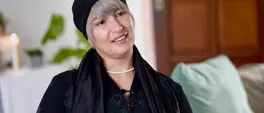King Charles, a vampire? Why people believe conspiracy theories
Keely Goodall
6 May 2024 | 11:34It is hard to know what the truth is in the world, and this can lead people towards crazy conspiracies.
Clarence Ford speaks to Daniel den Hollander, Clinical psychologist.
Listen to the interview in the audio below.
Questioning the world around us is human nature, but when those questions lose logic people fall into conspiracy theories.
There are plenty of theories out there, from the belief that the earth is flat, to questioning if King Charles is a vampire, to asserting that there is a 5G chip in the Covid vaccine.
ALSO READ:
Falling for conspiracy theories linked to how you think NOT intelligence
MAGA terrified that Taylor Swift is 'secret weapon' for Joe Biden
So why do people believe crazy theories despite evidence to the contrary?
Firstly, people start to believe conspiracies when they stop trusting the experts.
Den Hollander says that when people believe the experts have ‘sold out’ then they trust someone else.
The people believing these theories are also usually not involved in the professions they have opinions on.
Secondly, people’s attention spans are getting very short due to social media.
When a person cannot focus on an idea for more than a minute, they cannot critically engage with an argument or fairly critique it.
Thirdly, den Hollander says that people do not understand research or that it needs both logic and evidence to hold weight.
“When a person has to constantly defend their position without generating any new scientific evidence or theories, then you know you are dealing with a pseudoscience.”
- Daniel den Hollander, Clinical psychologist
Finally, people will fundamentally subscribe to a conspiracy theory because it gives them a sense of belonging to a group.
“What you have is a feeling of inclusivity in a world that might feel very threatening to you.”
- Daniel den Hollander, Clinical psychologist
Scroll up to the audio player to listen to the interview.
Get the whole picture 💡
Take a look at the topic timeline for all related articles.















